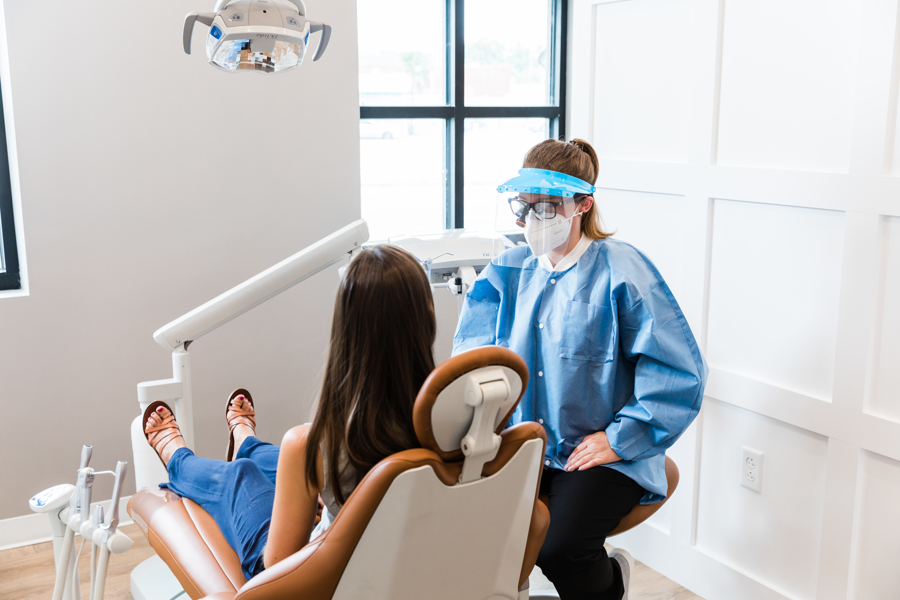Porcelain Veneers Washington DC: Your Pathway to a Brighter Smile
Porcelain Veneers Washington DC: Your Pathway to a Brighter Smile
Blog Article
Common Inquiries Concerning Oral Veneers Addressed
Oral veneers have come to be an increasingly desired alternative for those seeking to enhance their smiles, yet many people stay unpredictable about numerous elements of their usage. Trick concerns frequently arise regarding the application procedure, longevity, and possible dangers connected with these cosmetic improvements. Moreover, the difference between porcelain and composite veneers can significantly affect one's option. As we discover these common questions, it ends up being essential to take into consideration not only the advantages but additionally the implications of selecting oral veneers in pursuit of a much more confident look. What factors should one evaluate prior to making such a decision?
What Are Oral Veneers?
Oral veneers are thin, customized shells crafted from porcelain or composite resin that are designed to cover the front surface area of teeth. These dental prosthetics offer both aesthetic and functional objectives, offering a remedy for numerous oral flaws, consisting of staining, chips, spaces, and imbalance. By adhering to the teeth, veneers can substantially boost the general look of a smile, creating an extra eye-catching and uniform appearance.
Porcelain veneers are specifically preferred for their natural clarity and discolor resistance, making them an ideal choice for people looking for lasting results. In contrast, composite resin veneers are normally less expensive and can be applied in a solitary go to, however they might not provide the exact same resilience as porcelain choices.
The choice to select dental veneers typically stems from a wish for visual enhancement, however people must additionally think about factors such as the longevity of the material, maintenance requirements, and the potential demand for tooth decrease (Low Cost Veneers). Ultimately, oral veneers stand for a flexible and reliable option for accomplishing a radiant smile, satisfying individual cosmetic needs while advertising self-confidence and self-worth
Exactly How Are Veneers Applied?
The application process for veneers requires mindful preparation and precision to make sure optimum outcomes. The procedure usually begins with a comprehensive assessment, where the dental expert examines the client's dental health, discusses wanted results, and determines the ideal kind of veneers, whether porcelain or composite resin.
As soon as the therapy plan is developed, the dental professional prepares the teeth by removing a slim layer of enamel, typically about 0.5 mm to 1 mm, to fit the veneer. This step is critical as it makes sure a proper fit and protects against the veneers from appearing bulky - Veneers. After prep work, impacts of the teeth are required to produce customized veneers that match the person's distinct oral structure and visual preferences
While the irreversible veneers are being produced in an oral laboratory, momentary veneers may be put to safeguard the ready teeth. As soon as the permanent veneers are all set, the dental professional will meticulously bond them to the teeth using a solid oral adhesive. Final modifications are made to make sure correct alignment and attack, adhered to by polishing for a natural look. The procedure culminates in a follow-up visit to keep track of the veneers' fit and the person's complete satisfaction with their brand-new smile.
What Are the Perks?

Moreover, veneers are known for their longevity and useful content resistance to discoloring compared to natural teeth. Made from premium products such as porcelain or composite resin, they can preserve their look for several years with proper treatment. This longevity makes them a practical investment in one's oral look.
In enhancement to aesthetic enhancements, veneers can additionally add to enhanced dental wellness. By covering harmed or weakened teeth, they can offer extra assistance and security, assisting to avoid further decay or degeneration. This safety element can minimize the demand for extra considerable oral procedures in the future.

How Much Time Do They Last?
With correct treatment and maintenance, dental veneers can last anywhere from 10 to 15 years, making them a durable solution for boosting one's smile. The durability of veneers mostly depends upon the product made use of, the quality of the preliminary positioning, and the person's adherence to dental hygiene practices.
Porcelain veneers are understood for their longevity and resistance to discoloration, normally lasting closer to the 15-year mark why not try this out when cared for properly. Compound veneers, while extra economical, might require replacement quicker, commonly within 5 to one decade as a result of their vulnerability to put on and staining.

Additionally, using a mouthguard throughout sporting activities or nighttime can provide additional defense. Ultimately, while veneers provide a considerable visual improvement, their longevity is substantially affected by the dedication to proper dental care and routine examinations with an oral professional.
Are There Any Type Of Dangers?
Thinking about the transformative results of oral veneers, it is necessary to acknowledge the potential risks related to their application. While veneers can improve the appearance of teeth, the procedure includes the elimination of a slim layer of enamel, which can raise tooth level of sensitivity and vulnerability to degeneration.
One considerable risk is the opportunity of inappropriate placement or fitting, resulting in pain, bite misalignment, or also damage to the underlying tooth structure. Furthermore, if the veneers are not maintained correctly, they can become stained or cracked in time, necessitating replacement.
People might additionally experience allergies to the materials used in the veneers, particularly if they have level of sensitivities to particular oral composites. Furthermore, while veneers are durable, they are not undestroyable; too much force from grinding or clenching can bring about cracks.
It is crucial for individuals to speak with a certified oral professional to review their private risks and to adhere to aftercare directions diligently. By recognizing these dangers, patients can make informed choices concerning their dental veneer treatment and make certain the long life and success of their improvements.
Final Thought
In recap, dental veneers represent a beneficial cosmetic option for enhancing smiles, with factors to consider regarding their application, advantages, longevity, and linked risks. Their performance is influenced by variables such as the choice of product, with porcelain offering superior durability compared to composite alternatives. Proper treatment and upkeep are necessary to make best use of the life expectancy of veneers. Inevitably, informed decision-making relating to oral veneers can lead to sufficient aesthetic results and boosted oral health.
Dental veneers are thin, customized coverings crafted from porcelain or composite material that are made to cover the front surface of teeth. After prep work, perceptions of the teeth are taken to develop personalized veneers that match the patient's distinct dental structure and aesthetic preferences.
While the permanent veneers are being produced in a dental lab, temporary veneers may be placed to safeguard the prepared teeth. Once the permanent veneers are ready, the dental professional will very carefully bond them to the teeth utilizing a strong dental adhesive. Ultimately, informed decision-making regarding oral veneers can lead to satisfactory visual results and boosted oral health and wellness.
Report this page